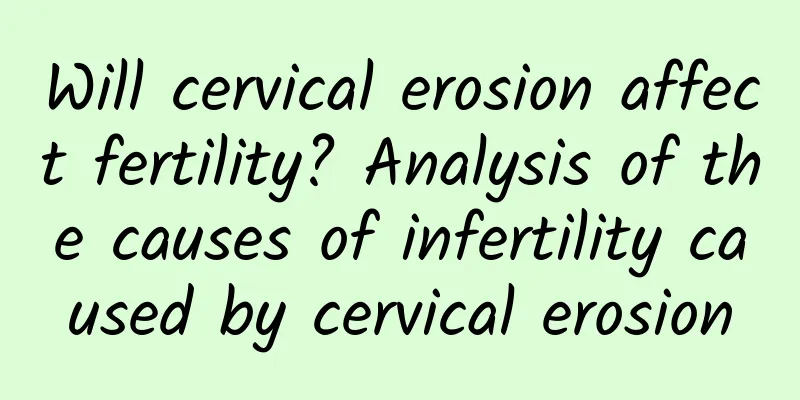What is the diagnosis of menopause?

|
A series of symptoms of menopausal syndrome appear, such as hot flashes, sweating, insomnia, headache, unstable blood pressure, palpitations, bone and joint pain, etc.; the reproductive organs gradually atrophy, causing vaginal dryness, vulvar itching, sexual dysfunction, and discomfort such as frequent urination, urgency, and inability to hold urine, and may also cause osteoporosis and abnormal blood lipid metabolism. Menopausal transition period and postmenopausal amenorrhea: On June 14, 1994, a working meeting on the progress of menopausal research in the 1990s was held in Geneva, proposing to abandon menopause and recommend the use of perimenopause and menopausal transition period. The regulations are as follows: ① Premenopause (pre-menopausal period): refers to the period of ovarian activity, including puberty to menopause ② Menopause (menopausal): refers to the last menstruation in a woman's life, which is often determined in retrospect. ③ Postmenopause: refers to the entire period from menopause to the end of life. ④ Menopause transitional period: refers to the period before menopause, that is, the transitional period from reproductive age to menopause, including the earliest clinical or blood hormone level signs of menopause (i.e., the beginning of ovarian function decline) until the last menstruation. ⑤ Peri-menopause: refers to the period before and after menopause in women, including the beginning of clinical or blood hormone level signs of menopause (i.e., the beginning of ovarian function decline), which lasts until 1 year after the last menstruation, that is, the menopause transitional period plus 1 year after menopause. Postmenopausal bleeding: Postmenopausal bleeding is not a disease, but a clinical symptom. With the continuous improvement of people's lives, women's life expectancy is gradually extended. One-third of their lives are spent after menopause, and a series of geriatric diseases follow one after another. Postmenopausal bleeding is one of the most common symptoms. Postmenopausal bleeding refers to vaginal bleeding that occurs one year after menstruation stops. It mainly refers to symptoms caused by non-organic, benign, and malignant lesions of the internal genitalia. The cause of postmenopausal bleeding should be sought for patients. With the development of medical science and the popularization of medical knowledge, people are more vigilant about postmenopausal bleeding, and the proportion of postmenopausal bleeding caused by malignant lesions is gradually decreasing. Foreign reports are less than 10%. It is mainly caused by non-organic lesions, followed by benign lesions. Domestic reports vary, about 20% to 50%. So, how should women avoid premature menopause? Breastfeeding is encouraged after childbirth, and the breastfeeding time should be extended as much as possible; women in childbearing age can use oral contraceptives for contraception. In addition, in terms of lifestyle habits, women should insist on drinking milk, eating fish, shrimp and other foods regularly, and exercising regularly, which are healthy and beneficial lifestyles. In particular, they should promote smoking cessation in public places and at home, and eliminate passive smoking, so as to avoid the harm of early menopause to women's health. |
<<: How to diagnose menopause?
>>: Diagnosis of premature menopause
Recommend
Is 7mm of pelvic fluid serious?
Is 7mm of pelvic fluid serious? If the pelvic eff...
Is it okay not to do a gynecological examination before abortion? You should know these gynecological common sense before abortion
Normally, there are many bacteria in the vagina, ...
Can CIN3 precancerous lesions be completely cured?
Which method is more effective in treating cervic...
How many days is appropriate for abortion surgery?
Artificial abortion is a common method of termina...
Thin legs this way! 6 super easy steps
Seeing that every Korean girl idol group has legs...
Analysis of the causes of bacterial vaginosis
The vagina is an important part of the female rep...
What are the reactions of ovarian cysts
What are the reactions of ovarian cysts? Ovarian ...
Detailed analysis of the causes of cervical precancerous lesions
What is the detailed analysis of the cause of cer...
How long can a chocolate cyst patient live?
How long can patients with chocolate cysts usuall...
How to cure fungal vaginitis
The incidence of candidal vaginitis in women is s...
Work up some "manly sweat" and you'll get leaner and leaner the more you eat! How to burn fat comprehensively
The weather is hot, which is a great time to work...
What are the preventive measures for uterine fibroids?
Uterine fibroids are the most common benign tumor...
What is the reason for postpartum menstrual irregularity? 4 methods to treat postpartum menstrual irregularity
Many women will encounter such a situation, they ...
Women should be careful of the 6 major hazards of abortion. Women should also pay attention to 4 things after abortion.
Women should be careful of the following six haza...
What are the effects of hysterectomy for adenomyosis?
Hysterectomy for adenomyosis can cause women to l...









